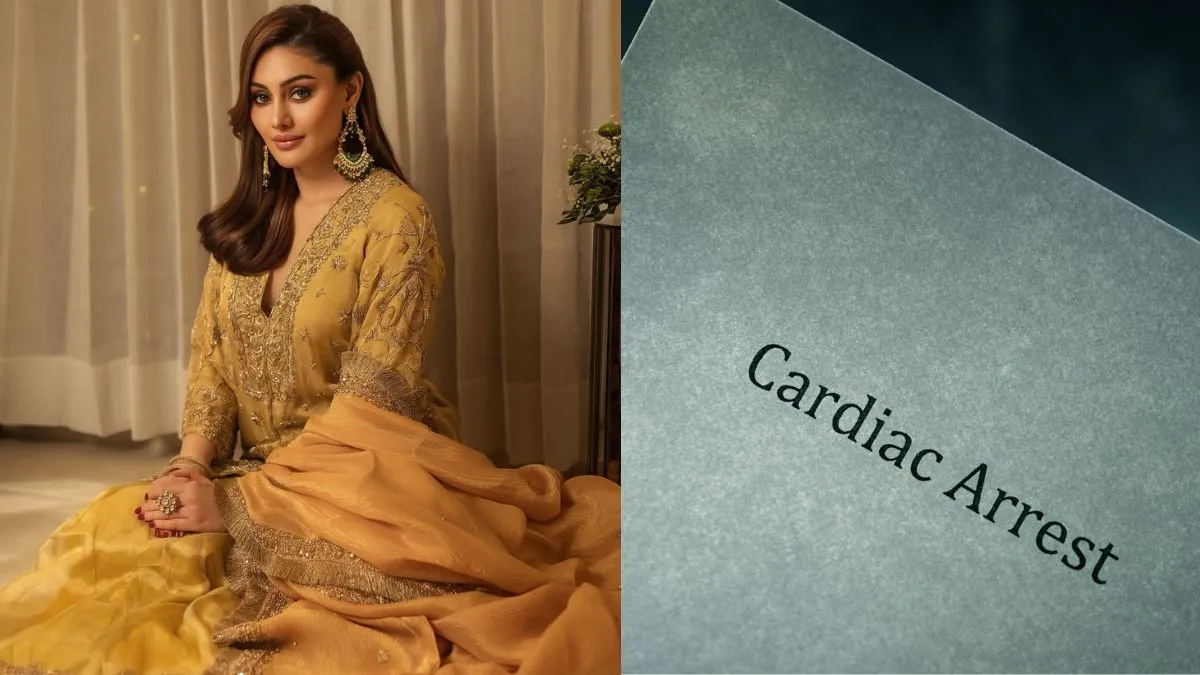- By Bornika Das
- Sat, 28 Jun 2025 12:09 PM (IST)
- Source:JND
Cardiac Arrest: Shefali Jariwala, also known as the ‘Kaanta Laga’ girl, passed away at the age of 42, reportedly owing to a cardiac arrest. The actress suffered a sudden cardiac arrest on the night of June 27. As per reports, Shefali was rushed to the Bellevue Multispeciality Hospital by her husband along with three others. Upon arrival at the hospital, she was declared dead. The untimely death of the Bigg Boss 13 fame has raised concerns about the rising heart-related ailments among middle-aged and seemingly healthy individuals. With changing lifestyles, increasing stress levels and poor dietary habits, heart conditions like cardiac arrest and heart attack no longer restrict to the elderly. However, most people use the terms cardiac arrest and heart attack interchangeably, despite them being medically distinct conditions.
Heart Attack vs Cardiac Arrest: Know The Difference
A heart attack occurs when one or more of the coronary arteries, which supply blood to the heart muscle, become partially or fully blocked. This blockage reduces or stops the flow of oxygen-rich blood to part of the heart, causing damage or death to that area of the heart muscle.
A cardiac arrest is an electrical problem where the heart suddenly stops beating properly. The heart’s electrical system malfunctions, causing the heart to stop pumping blood effectively, leading to a sudden loss of heart function and breathing.
ALSO READ: Shefali Jariwala Death: Aly Goni To Mika Singh, Celebrities Mourn Demise Of Kaanta Laga Fame
Symptoms Of Cardiac Arrest
Loss of consciousness (fainting)
Heart palpitations.
Dizziness.
Lightheadedness.
Weakness.
Sudden cardiac arrest occurs without preceding symptoms.
Causes Of Cardiac Arrest
Cardiomyopathy
Drugs for other medical conditions
Heart attack
Heart failure
Recreational drugs, like cocaine
Brugada syndrome
Long QT syndrome (LQTS)
Severe illness or injury (trauma) with major blood loss

How To Treat Cardiac Arrest (Image Credits: Canva)
Other cardiac arrest causes include:
Coronary artery disease (CAD)
Congenital (since birth) heart conditions
Changes to your heart’s structure because of disease or infection
Extreme physical activity or blood loss
Infectious diseases
Respiratory conditions
Severe injury (trauma)
Toxins (eating or drinking poisonous substances)
Treatment Of Cardiac Arrest
Sudden cardiac arrest can be treated and reversed. The cardiac arrest treatment has to start immediately. Survival can be as high as 90 per cent if treatment starts within the first minutes after sudden cardiac arrest. The survival rate drops by about 10% each minute longer.
Sudden cardiac arrest can be fatal if it lasts longer than eight minutes without CPR. Brain damage can happen after just five minutes.
It is important to follow these steps if witnessing someone having a cardiac arrest
- Call 108 immediately
- Start CPR, even if it’s just the hands-only version. CPR can save a life by using chest compressions to replace the heart’s pumping action. It keeps blood and oxygen circulating until help arrives.
- Use an AED (automated external defibrillator) if there’s one available. CPR plus defibrillation rescues a person from sudden cardiac arrest. Using an AED is the best chance of helping a person survive. The shorter the time until defibrillation, the greater the chance of survival.
(Disclaimer: This content, including suggestions and advice, provides generic information only. It is in no way a substitute for qualified medical opinion. Always consult a specialist or your own doctor for more information before making any drastic changes in your lifestyle.)
